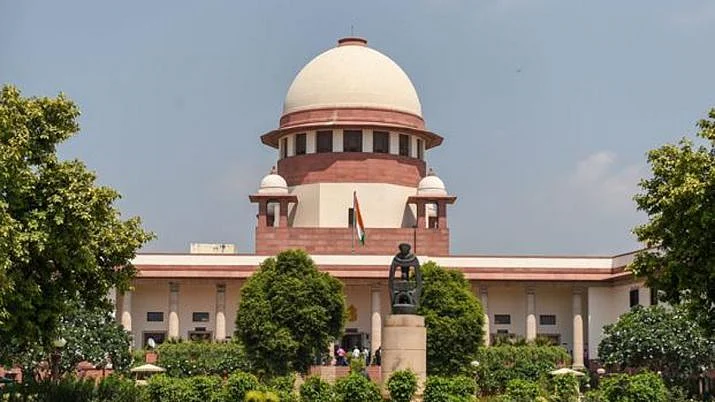Supreme Court on reservation: Opening Pandora’s box
The recent Supreme Court ruling that reservations are not a fundamental right gives rise to certain questions

The Supreme Court ruled recently that “there is no fundamental right which inheres in an individual to claim reservation in promotion”, and that ‘no mandamus can be issued by court directing state government to provide reservations.’
The verdict gives rise to certain questions. Have reservations been read and interpreted as part of protections and in the spirit guaranteed in Articles 14,15 and 16 (4) which specifically deal with to right to equality of opportunity in employment? Secondly, how have entitlements as fundamental rights and Directive Principles, over the years, been interpreted juridically? Are distinctions being made between fundamental rights as justiciable and directive principles as non-justiciable? Do the Directive Principles not impose an obligation on the state to realise the entitlements of the citizens — thus giving, as Babasaheb Ambedkar held — the Constitution a transformative potential? Are fundamental rights discretionary, as this Supreme Court verdict suggests, and hence the state has no obligations?
Underlying this verdict and also carrying forward ideas of “merit” and ‘efficiency”, is the social debate going on for decades and finding interpretations in varied juridical pronouncements (for example as early as MR Balaji and others vs State of Mysore, 1963). It pitted individual mobility versus class entitlements and the need of the state to identity ‘legitimate claimants’. The verdict extended to say that there was no justiciable rights or constitutional duty to make reservations, thereby reducing substantial equality to formal equality, all of which go against the spirit of the Constitution. The debates on reservations in India have too long carried the presumption that reserved categories lack ‘merit’. Also, as Kannabiran (2010) held, reservations have been reduced in constitutional interpretation from a philosophical premise to one of quantification.
A five- judge Constitution Bench in 2006 in the M Nagraj case held that states were bound to provide quantifiable data on backwardness of SCs, STs, facts on inadequate representation in government jobs and overall administrative efficiency before providing quota in promotions to SC/ST communities. Various state governments had sought a reconsideration of this verdict by a larger bench as it placed conditions which were unnecessary and overlooked stigma of caste and presumed backwardness.
One of those who opposed quota in reservations in the hearings argued that once an employee joins government service, the presumption of backwardness “vanishes”. And that such quota can be continued for class IV and III services but not for higher services.
In September 2018, the Supreme Court turned down an appeal by the Centre to reconsider its earlier verdict that had rejected the idea of reservations for SC/STs in job promotions. It upheld its 2006 order that said that it was not mandatory for government to give reservations in promotions in public sector jobs. This order also stated that states need not collect quantifiable data on backwardness od SC/STs for quota in job promotions.
There were no comments on the 2006 verdict on adequacy of representation of SC/STs in promotions or on administrative efficiency. The Supreme court had, following the idea of ‘creamy layer’ used for Other Backward Classes (OBCs), asked why it could not be made applicable to deny quota in promotion to ‘affluent’ among SC/ST communities. There was an underlying assumption that SC/ST communities are not entitled to social mobility and that social mobility meant that discriminatory attitudes did not persist.
In early 2019, before the parliamentary elections, the Central government decided to legislate 10 per cent reservation in higher education and government employment, sensing the need for upper caste votes — its traditional support base — despite the Supreme Court having held that the Constitution does not permit over 50 per cent reservations and a constitutional amendment needed to be enacted to bypass the Constitution and bring in ‘economic weakness’ as an eligibility criteria. The criteria introduced and passed in Parliament would in effect cover almost all Indians! That caste discrimination and marginalisation can be eliminated by a single policy act, was flawed thinking. The reservation principle was very much linked with full citizenship.
In April 2, 2018, a Bharat bandh called by less known Dalit organisations against the dilution of the stringent provisions of the SC, ST Prevention of Atrocities Act, 1989, evoked wide response from Dalit communities and India witnessed an unprecedented peaceful mass protest, with a few exception of clashes with upper castes, which was noted by political parties. There was and remains an apprehension that constitutional rights are being eroded and that reservation itself could be removed.
Over and above this, the economic policies, privatisation, contract system, and weakening of public education system were leading to newer vulnerabilities among Dalits and tribal communities. The Dalit upsurge witnessed in recent years was also the result of years of mobilisation on issues ranging from land, violence including sexual violence, forced migration, untouchability, manual scavenging, etc.
The flogging incident in Una (Gujarat) and other atrocities on Dalits have energised varied Dalit sub-castes and Dalit organisations to unite. The youth and students in particular mobilised around the Rohit Vemula issue and broader alliances were and are being forged.
What have been considered as ‘sectional’ issues are more and more leading to wider solidarities on citizenship and the challenges to constitutional rights and principles. Responses to varied legal verdicts, including the recent one on SC/ST promotions in jobs, will no doubt be inter-sectional in approach, given the present nature of protests witnessed in varied parts of India on citizenship.
(The writer is a Kochi-based policy analyst)
Follow us on: Facebook, Twitter, Google News, Instagram
Join our official telegram channel (@nationalherald) and stay updated with the latest headlines
